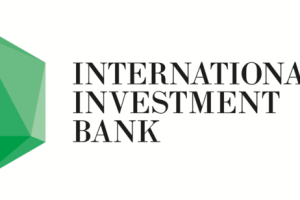Alătură-te comunității noastre!
Vezi cele mai recente știri & informații din piața de capital

If Russia continues to use the gas pipelines as economic weapon against the EU and indeed shuts off all gas pipelines for the winter, the slump could be disastrous, affecting the economic stability of all countries in the EU.
The region’s increasingly acute energy crisis, which is pushing up inflation and forcing central banks to hike rates, has made a recession all but inevitable.
But there is a very worrying disconnect here, as Europe staggers headfirst into a recession, that will cause considerable harm to its businesses and its people, its banks are expecting a windfall. That uncomfortable disconnect makes the financial sector a punching bag for regulators and politicians.
Why a windfall? The first reason is that lending margins always rise in line with interest rates. The worse inflation gets, the faster rate-setters must hike, meaning banks make even more money. Bank of America analysts believe that the revenue windfall could be as much as 88 billion euros next year.
Secondly, the lenders are not expecting a wave of loan defaults, especially if governments step in to help consumers avoid the most extreme energy price rises, which is now looking likely.
Even if there a large amount of bad debt charges, Deutsche Bank has estimated that a Russian gas cut-off would force it to take a hit of 1 billion euros. Using Refinitiv estimates, that’s equivalent to just 16% of 2023 pre-tax profit.
Carlo Messina, chief executive of Italy’s Intesa Sanpaolo, has said that in a recession the cost of possible defaults would be more than offset by higher interest income, and the Analysts agree. Many of the main banks are forecasting a similar or higher return on tangible equity than they were before Russia invaded Ukraine.
Goldman Sachs analysts expect Britain’s economy to contract for three consecutive quarters starting in October, while Morgan Stanley economists expect German GDP to shrink by 0.4% in 2023.
That strength in-depth, means banks are entering the crisis with a target on their backs. In the pandemic, regulators and politicians pushed lenders to support customers through debt repayment holidays and cheap credit. In return, policymakers gave banks loan guarantees, looser capital rules and extra wiggle room in accounting for bad debt. A recession is likely to see a repeat of those requests, but without the sweeteners.
Britain’s Financial Conduct Authority Informed Bank CEO’s in July that its pandemic-era guidance on dealing with customers in financial difficulty is also relevant for the cost-of-living crisis.
Poland’s government has demanded that lenders give mortgage borrowers a break, while Spain has floated a bank windfall tax. There’s scant mention of any carrots to go along with the stick.
Italy’s UniCredit has taken the initiative, announcing an 8-billion-euro package to help borrowers on Monday. Its peers may eventually have to follow, if not willingly then under duress.









Vezi cele mai recente știri & informații din piața de capital